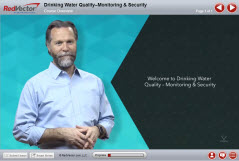The fifth fundamental canon of the Code of Ethics published by the National Society of Professional Engineers (NSPE) states, "Engineers shall avoid deceptive acts." Deception can be used to elevate one's status or financial position, and it might not be easy to discover. Engineers must represent their qualifications, knowledge, and work truthfully, otherwise members of the public will quickly lose respect for the profession and significant harm can be caused by unqualified work. This webinar will explore case studies and court case summary judgments to provide an understanding of how deceptive acts can be dangerous with long-lasting effects on the health, safety, and welfare of society.
Note: This is a live webinar delivered via GoToWebinar. Session instructions will be emailed to you 24-48 hours prior to the webinar and the morning of the webinar. If you have not received your instructions for any reason, please call Customer Support (1-866-546-1212) the day of the event. Webinars are live and interactive. Students will have the ability to interact with and ask questions of the presenter directly.
1. Describe different types of deception and how these acts affect the welfare of the public.
2. Explore cases of deception and exaggeration related to advertisement of services and how these affect public trust.
3. Analyze the use of Artifical Intelligence tools in the completion of engineering reports and how to clarify their use to enhance public welfare.
4. Explain how deception can affect public understanding of critical engineering issues, such as sustainability and disaster mitigation.





